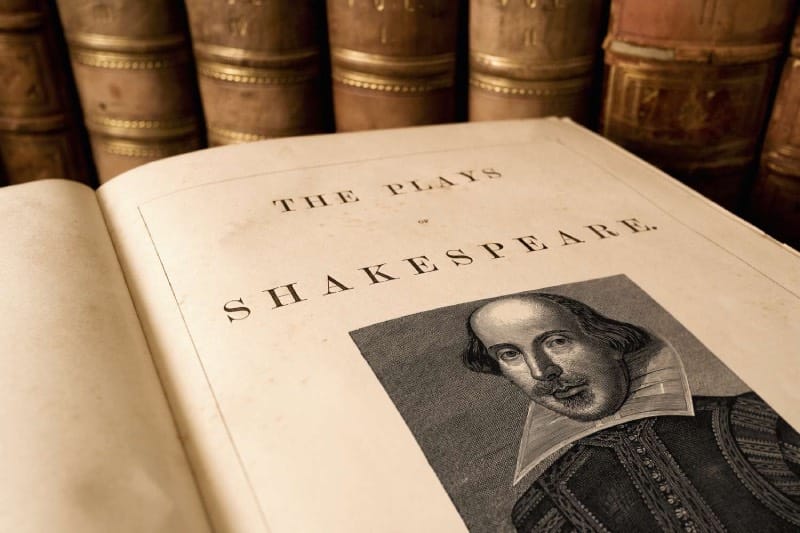Have you ever been in a pickle and didn’t know what words you should say? Then Shakespeare might be able to help you out. He often invented completely new words to express himself or the characters in his plays. However, some words still get used in day-to-day conversations, and we bet that you didn’t even know that Shakespeare was the one to create them. Keep on reading to discover some of the plays for which Shakespeare invented new words and what some of these words are!
Some of Shakespeare’s best plays
When someone talks about Shakespeare, most people will either immediately think about Romeo and Juliet or the famous verse from Hamlet, “To Be Or Not To Be, That Is The Question.” These are also the two most famous plays from Shakespeare’s writing. While writing these, William Shakespeare had to invent some new words to make sure his listeners could understand what he meant and keep the language of the play unique. Other famous plays are Julius Caesar and Othello. In total, he wrote more than 38 plays and invented new words to use in a lot of these!

20 of the most used words he invented!
All words must come from somewhere, and even though we now have words such as Skibidi and Rizz, adults use others in everyday conversations. Shakespeare was generous and created over 1700 new words, and we still use some of them today. We have selected 20 of his sayings that shaped the English language as we know it and listed them below. So, the next time you’re using any of these words, remember that you’re speaking the words of a genius!
- Addiction – Coined in Othello to describe a consuming passion.
- All the world’s a stage – From As You Like It, life as a performance.
- Bedazzled – Shining brilliance from The Taming of the Shrew.
- Brave new world – Awe for new possibilities, from The Tempest.
- Critic – First used in Love’s Labour’s Lost for judgment of art.
- Eventful – Meaning full of events, from As You Like It.
- Eyeball – First appearance in The Tempest.
- Generous – Used in its modern sense in Julius Caesar.
- Good riddance – Relief at parting, from Troilus and Cressida.
- In a pickle – A tough spot, coined in The Tempest.
- It’s Greek to me – Confusion captured in Julius Caesar.
- Lonely – First written use in Coriolanus.
- Majestic – Grand and impressive, from Henry VIII.
- Manager – English debut in A Midsummer Night’s Dream.
- Radiance – Glowing brightness, seen in The Two Gentlemen of Verona.
- Star-crossed lovers – Fateful love, from Romeo and Juliet.
- Swagger – Arrogant stride in A Midsummer Night’s Dream.
- Undress – Removing clothes, from The Taming of the Shrew.
- Wild-goose chase – Futile pursuit, in Romeo and Juliet.
- To thine own self be true – Be authentic, from Hamlet.
How many of these words do you use daily?
